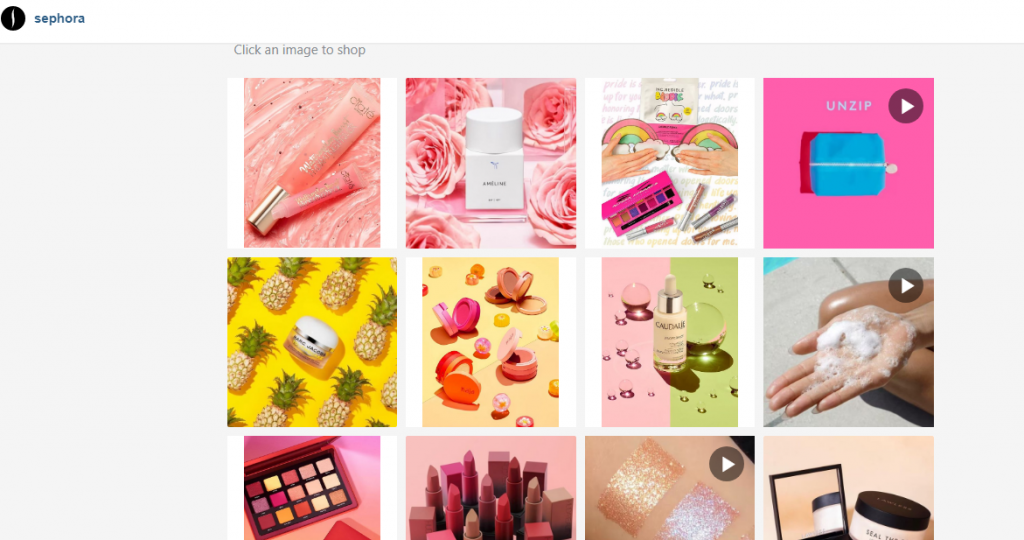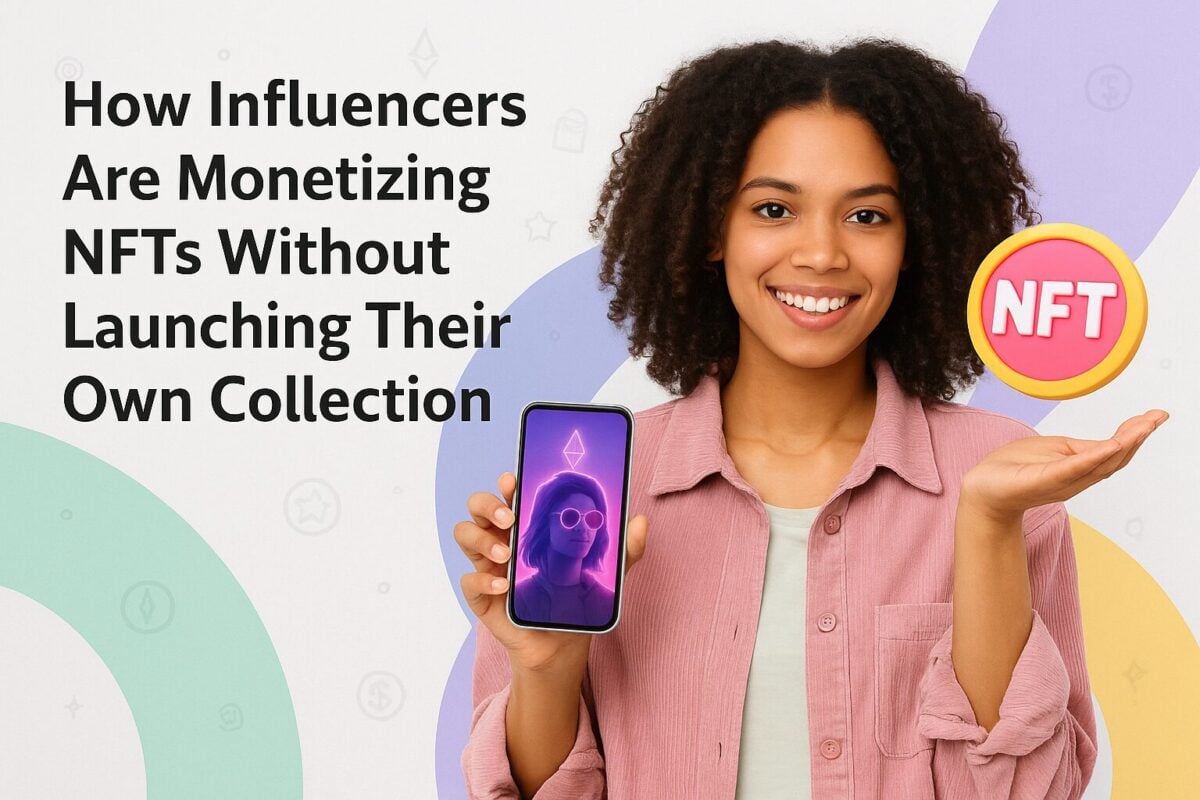Social media has emerged as a mainstream marketing channel where brands and consumers interact and engage in real time. Almost all businesses that have an online presence are present on social media and are using it to market their products.
However, no other industry has benefited from the social media marketing boom as much as the beauty industry.
How Social Media is Shaping the Beauty Industry:
How Social Media is Shaping the Beauty Industry
The growing popularity of social media and the sheer number of active users on social platforms have made it an integral part of every brand’s marketing strategy. The beauty industry has significantly benefited from this and has evolved to be a $5.5 trillion industry.
Here are two of the most notable changes that the industry has seen due to the growth of social media.
It Has Opened Up New Sales Channels
Beauty brands have capitalised on the popularity of social media platforms and have brought their shops to the consumers, instead of asking them to visit.
Visual social media platforms like Instagram are being used as virtual stores with feeds acting as virtual product displays. Take the beauty brand, Sephora, for example. On their Instagram feed, users can simply click on a picture to shop.

Image via Instagram
Social media platforms have also recognised this trend and responded by providing features that help with social selling. From Shoppable pins to Instagram Stories with a CTA, there are numerous ways in which you can sell on social media.
Most of these options direct users to the actual website and that’s where they make the purchase. However, beauty brands have broken the norms, shortened the process, and are selling directly from social media. A lot of boutique beauty brands and sellers have emerged that take orders directly from social media and accept online payments.
Here’s an example of one such seller of beauty products. You can see in the photo caption that they invite consumers to, "DM to order or [use] Whatsapp."

Image via Instagram
Consumers can place an order by sending a direct message and pay using online wallets or other payment methods. It’s as simple as that. Social Media Scheduling Tools can be extremely helpful in managing and automating your posts, ensuring a consistent presence on various platforms.
The Industry Has Truly Gone Global
Another big way in which social media has changed the beauty industry is that it has made global selling a reality. Gone are the days when you could only order products available in your region and had to wait for a relative to travel abroad to get that coveted beauty product. Now, you can order from any brand from the comfort of your home, thanks to the emergence of social media resellers.
You might argue that numerous beauty brands already provide global shipping, so why would anyone buy from social media sellers? The fact is that ordering products from other countries costs a lot because of the shipping and import charges.
These social media resellers order products in bulk or find other ways to avoid paying heavy import duties. That is why they are able to sell the same products at a much lower cost than what you would have paid by ordering from an international website.
Here’s an example of one such reseller that delivers beauty products worldwide.

Image via Instagram
Social Media Strategies for Beauty Brands
Here are some useful social media marketing strategies that can help you ace your social media game.
Provide Useful and Informative Content to Your Audience
One of the most successful social media content strategies for beauty brands is to create “how-to” content and tutorial videos.
Not everyone who is interested in a beauty product knows how to use it. Makeup looks created by expert artists leave regular beauty enthusiasts wanting for more. They want to know exactly how they can replicate the same looks and that’s where tutorial videos help.
Here are some reasons why you should include tutorials in your content plan.
- This is the type of information that consumers seek rather than you pushing it on them.
- You can use the same products to create numerous looks, so there will never be a dearth of content ideas.
- These videos show your products in use and encourage people to buy after watching what they can do.
- It removes any concerns a consumer might have about how the product will look when applied and makes it easy for them to make a purchase decision.
Apart from tutorials, you can also use other informative content like tips, tricks, or skincare and makeup routines. All of these provide much sought-after, useful information to your existing or potential customers. And, these types of content also have similar benefits as tutorials.
And, one of the best mediums for posting tutorial videos is IGTV, just like Nykaa has done here.
They have created an IGTV channel that just posts tutorials, dos and don’ts, tips, and other beauty-related informative content.
Create a Distinct Brand Personality
A great way to stand out in the crowd on social media is to have a clear and distinct brand voice and personality. This helps improve your brand recognition and recall.
Yes, this is the same strategy that brands like Coca Cola have used for years by maintaining consistent brand elements like logos and colours.
The same strategy when applied to social media focuses on keeping your page aesthetics and tone of voice consistent. Some brands do this by using humour as a means to set their brand voice, others may focus on social causes and issues and keep a serious brand voice. You can use any tone for your social media content, just keep it consistent.
It's not just about tone, you can also create a distinct brand personality by maintaining consistent aesthetics. Maybe you use the same colour palette for all your posts or you post similar kind of content that looks like a portfolio when looked as a whole.
Check out Kylie Cosmetics’ Instagram page. Every post that is added forms a whole to make the page look consistent.
The colour palette used for all posts is the same and the feed looks good as a whole. Moreover, the pastel colours used in the posts are similar to the actual makeup products, as Kylie is known for her pastel and nude makeup palettes.
If you compare this to the brand personality of YSL Beauty, you will see a clear difference. YSL being a luxury brand uses black, red, and gold colours that look elegant and luxurious.
Start a Conversation to Keep Your Audience Engaged
Building a brand on social media requires you to remain active and post relevant content consistently and frequently. However, it is not always feasible to create fresh content every day, for every platform that you have a presence on.
This is why you sometimes need to post content that sparks a conversation that keeps your audience engaged. You can do this by simply asking a question and, as long as you get responses to it, you will get engagement on your post.
And, the question does not necessarily have to be related to your industry but could be something fun that everyone would like to talk about.
Take this Twitter post by Benefit Cosmetics, for example. They asked a question that people would like to answer and got a good number of comments.

Image via Twitter
You can also conduct a quiz or poll as this kind of social media post gets good engagement. Or, you can post shareworthy content that people will like to repost/retweet and will keep getting engagement hours or even days after posting.
Leverage User-Generated Content
User-generated content is a goldmine because it does not require any effort on your part and it is likely to be well-received by your audience as it is authentic. And, it can give you enough content to post frequently, even when you can't create fresh content for your social media accounts.
All you need to do is encourage your audience to create that content for you. You can do this by asking them to use a brand hashtag for a chance to get featured on your page. And, of course, they need to be seen using your product in their pictures. In the case of beauty companies, this means someone creating a look using a brand’s products.
Benefit Cosmetics uses this strategy where they repost user posts that use the brand’s hashtag #benefitbrows.

Image Via Instagram
Use Hashtags
This is the most important part of any brand’s social media strategy and can’t be ignored. Hashtags are extremely useful in enhancing your content’s reach and helping you target a relevant audience.
You can use popular industry hashtags to reach people who are interested in your niche. This will also help you reach more people than you could have reached on your own.
You can also create campaign-and-brand-specific hashtags to promote your content and also track how well a specific campaign is doing.
Conclusion
The growing popularity of social media has played a big role in the evolution of the beauty industry and making it truly global. And, the beauty industry is embracing social media in all its glory and leveraging it to its full potential.
However, this has also led to increased competition within the industry with everyone trying to get the attention of consumers on social media. In light of this, we have curated a list of the most useful social media strategies for beauty brands to help you win at social media marketing.
Leverage the strategies above to excel at social media marketing.



